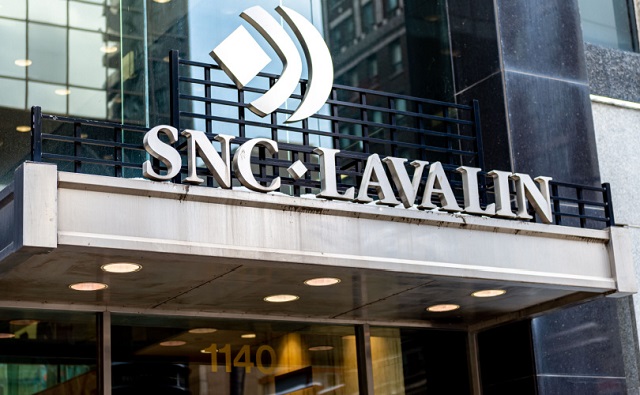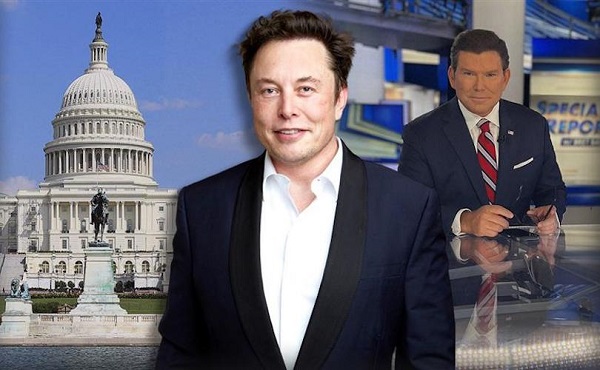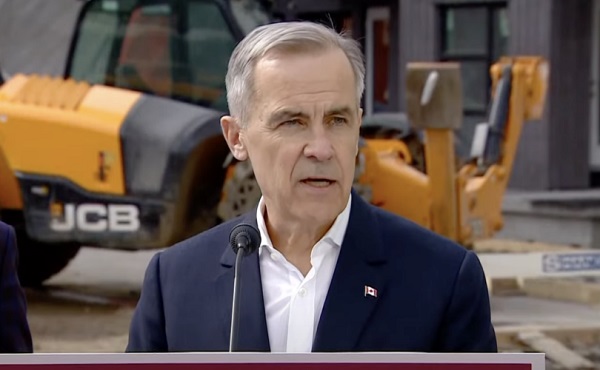National
Liberal MPs stop police commissioner from testifying about SNC-Lavalin scandal

From LifeSiteNews
RCMP commissioner Michael Duheme was set to testify about whether Justin Trudeau blocked police from obtaining cabinet documents in the SNC-Lavalin affair when MPs on the ethics committee voted 7-3 to adopt a Liberal motion to abruptly adjourn the meeting
Canadian Liberal MPs on the ethics committee voted to stop the Royal Canadian Mounted Police (RCMP) commissioner from testifying about a bribery scandal involving the large Canadian engineering firm SNC-Lavalin and the federal Liberal government of Prime Minister Justin Trudeau.
RCMP commissioner Michael Duheme was set to testify about the bribery scandal to speak about whether Trudeau blocked the police from obtaining certain cabinet documents, which might have implicated him regarding his obstruction of justice charges that stemmed from the SNC-Lavalin affair.
Liberal, New Democrat (NDP), and Bloc Québécois MPs on the ethics committee voted 7-3 to adopt a Liberal motion to abruptly adjourn the meeting with Duheme only minutes after it began.
Conservative MP Michael Barrett called the abrupt meeting cancellation “unacceptable.”
“Witnesses were to give testimony and now we have government members looking to shut down a hearing on a very serious matter with respect to a criminal investigation into the Prime Minister and we have the Commissioner of the RCMP at this table,” Barrett said.
Liberal MP Mona Fortier, who serves as the ethics committee vice chair, claimed the SNC-Lavalin scandal had not been “discussed whatsoever by the committee.”
“I think the committee should at least have had the opportunity to debate the motion presented in due form. I don’t think this is necessarily the best way to go forward, having committees unable to make their decisions. So based on this reasoning, I would like to adjourn the meeting,” she said.
In June, LifeSiteNews reported on how the RCMP denied it was looking into whether Trudeau and his cabinet committed obstruction of justice concerning the SNC-Lavalin bribery scandal.
SNC-Lavalin was faced with charges of corruption and fraud concerning about $48 million in payments made to officials with the Libyan government between 2001 and 2011. The company had hoped to be spared both a trial and prosecution deferred prosecution agreement.
However, then-Attorney General Jody Wilson-Raybould did not go along with Trudeau’s plan, which would have allegedly appeared to help SNC-Lavalin. Back in 2019, she contended that both Trudeau and his top Liberal officials had inappropriately applied pressure to her for four months to directly intervene in the criminal prosecution relating to corruption and bribery charges connected to SNC’s government contracts in Libya.
Wilson-Raybould testified in early 2019 to Canada’s justice committee that she believed she was moved from her then-justice cabinet posting to veterans’ affairs due to the fact she did not grant a request from SNC-Lavalin for a deferred prosecution agreement rather than a criminal trial.
Of note is that a criminal conviction would have banned the company from getting any government contracts for 10 years.
Trudeau flat-out denied it was being investigated by the RCMP.
A little less than four years ago, Trudeau was found to have broken the federal ethics laws, or Section 9 of the Conflict of Interest Act, for his role in pressuring Wilson-Raybould.
MPs were hoping Duheme’s testimony would clear up many questions
Conservative MPs were hoping that Duheme’s testimony would have cleared up more questions about the SNC-Lavalin scandal after the group Democracy Watch on October 16 revealed a host of records regarding it.
These records show that the RCMP was stopped by Trudeau’s top cabinet members via a restricted disclosure order. This order stated that authorization to waive solicitor-client privilege would not be allowed in regard to information concerning communications between Wilson-Raybould and the director of public prosecutions regarding SNC-Lavalin.
The records released by Democracy Watch involve about 1,815 pages of records from 19 documents that the RCMP recently disclosed after an Access to Information Act (ATIA) request.
In July 2022, the group filed an Access to Information Act (ATIA) request with the RCMP about the SNC-Lavalin affair and Trudeau.
As for SNC-Lavalin, which now goes by the name “AtkinsRéalis,” in 2019 it pleaded guilty to committing fraud in a Québec Provincial Court and was hit with a $280 million fine. Company executives also admitted that they had paid some $47.7 million in bribes to get contracts in Libya.
After Duheme was blocked from testifying, Conservative MPs Barrett and Larry Brock said in a press release that Trudeau had “refused to hand over documents or let individuals who were involved in the affair testify” after it was discovered he broke Canada’s ethics laws.
2025 Federal Election
Next federal government should recognize Alberta’s important role in the federation

From the Fraser Institute
By Tegan Hill
With the tariff war continuing and the federal election underway, Canadians should understand what the last federal government seemingly did not—a strong Alberta makes for a stronger Canada.
And yet, current federal policies disproportionately and negatively impact the province. The list includes Bill C-69 (which imposes complex, uncertain and onerous review requirements on major energy projects), Bill C-48 (which bans large oil tankers off British Columbia’s northern coast and limits access to Asian markets), an arbitrary cap on oil and gas emissions, numerous other “net-zero” targets, and so on.
Meanwhile, Albertans contribute significantly more to federal revenues and national programs than they receive back in spending on transfers and programs including the Canada Pension Plan (CPP) because Alberta has relatively high rates of employment, higher average incomes and a younger population.
For instance, since 1976 Alberta’s employment rate (the number of employed people as a share of the population 15 years of age and over) has averaged 67.4 per cent compared to 59.7 per cent in the rest of Canada, and annual market income (including employment and investment income) has exceeded that in the other provinces by $10,918 (on average).
As a result, Alberta’s total net contribution to federal finances (total federal taxes and payments paid by Albertans minus federal money spent or transferred to Albertans) was $244.6 billion from 2007 to 2022—more than five times as much as the net contribution from British Columbians or Ontarians. That’s a massive outsized contribution given Alberta’s population, which is smaller than B.C. and much smaller than Ontario.
Albertans’ net contribution to the CPP is particularly significant. From 1981 to 2022, Alberta workers contributed 14.4 per cent (on average) of total CPP payments paid to retirees in Canada while retirees in the province received only 10.0 per cent of the payments. Albertans made a cumulative net contribution to the CPP (the difference between total CPP contributions made by Albertans and CPP benefits paid to retirees in Alberta) of $53.6 billion over the period—approximately six times greater than the net contribution of B.C., the only other net contributing province to the CPP. Indeed, only two of the nine provinces that participate in the CPP contribute more in payroll taxes to the program than their residents receive back in benefits.
So what would happen if Alberta withdrew from the CPP?
For starters, the basic CPP contribution rate of 9.9 per cent (typically deducted from our paycheques) for Canadians outside Alberta (excluding Quebec) would have to increase for the program to remain sustainable. For a new standalone plan in Alberta, the rate would likely be lower, with estimates ranging from 5.85 per cent to 8.2 per cent. In other words, based on these estimates, if Alberta withdrew from the CPP, Alberta workers could receive the same retirement benefits but at a lower cost (i.e. lower payroll tax) than other Canadians while the payroll tax would have to increase for the rest of the country while the benefits remained the same.
Finally, despite any claims to the contrary, according to Statistics Canada, Alberta’s demographic advantage, which fuels its outsized contribution to the CPP, will only widen in the years ahead. Alberta will likely maintain relatively high employment rates and continue to welcome workers from across Canada and around the world. And considering Alberta recorded the highest average inflation-adjusted economic growth in Canada since 1981, with Albertans’ inflation-adjusted market income exceeding the average of the other provinces every year since 1971, Albertans will likely continue to pay an outsized portion for the CPP. Of course, the idea for Alberta to withdraw from the CPP and create its own provincial plan isn’t new. In 2001, several notable public figures, including Stephen Harper, wrote the famous Alberta “firewall” letter suggesting the province should take control of its future after being marginalized by the federal government.
The next federal government—whoever that may be—should understand Alberta’s crucial role in the federation. For a stronger Canada, especially during uncertain times, Ottawa should support a strong Alberta including its energy industry.
2025 Federal Election
Donald Trump suggests Mark Carney will win Canadian election, touts ‘productive call’ with leader

From LifeSiteNews
‘It was an extremely productive call, we agree on many things, and will be meeting immediately after Canada’s upcoming Election,’ Trump wrote about Carney on Friday.
U.S. President Donald Trump says he had “an extremely productive call” with Prime Minister Mark Carney and implied that the World Economic Forum-linked politician will win Canada’s upcoming federal election.
“I just finished speaking with Prime Minister Mark Carney, of Canada,” Trump wrote on Truth Social Friday. “It was an extremely productive call, we agree on many things, and will be meeting immediately after Canada’s upcoming Election to work on elements of Politics, Business, and all other factors, that will end up being great for both the United States of America and Canada. Thank you for your attention to this matter!”
Reacting to the post, LifeSiteNews editor-in-chief John-Henry Westen wrote on X:

Trump’s comments come just weeks before Canadians head to the polls on April 28 for a federal election. Carney called the snap-election just nine days after taking over for Justin Trudeau as leader of the Liberal Party and prime minister.
Carney, an admitted “globalist” and “elitist,” formerly served as head of the Bank of Canada and Bank of England, and has extensive ties to globalist groups like the World Economic Forum and the United Nations.
Trump’s comments regarding Carney may prove significant as much of the debate in the mainstream media ahead of the election has been about how the prospective leaders will handle tariff threats and trade deals with America.
-

 Business1 day ago
Business1 day agoFeds Spent Roughly $1 Billion To Conduct Survey That Could’ve Been Done For $10,000, Musk Says
-

 2025 Federal Election2 days ago
2025 Federal Election2 days agoChinese Gangs Dominate Canada: Why Will Voters Give Liberals Another Term?
-

 Alberta17 hours ago
Alberta17 hours agoPhoto radar to be restricted to School, Playground, and Construction Zones as Alberta ends photo radar era
-

 Health19 hours ago
Health19 hours agoRFK Jr. Drops Stunning Vaccine Announcement
-

 Alberta11 hours ago
Alberta11 hours agoProvince announces plans for nine new ‘urgent care centres’ – redirecting 200,000 hospital visits
-

 Business8 hours ago
Business8 hours agoElon Musk, DOGE officials reveal ‘astonishing’ government waste, fraud in viral interview
-

 Energy2 days ago
Energy2 days agoEnergy, climate, and economics — A smarter path for Canada
-

 2025 Federal Election2 days ago
2025 Federal Election2 days agoFool Me Once: The Cost of Carney–Trudeau Tax Games





